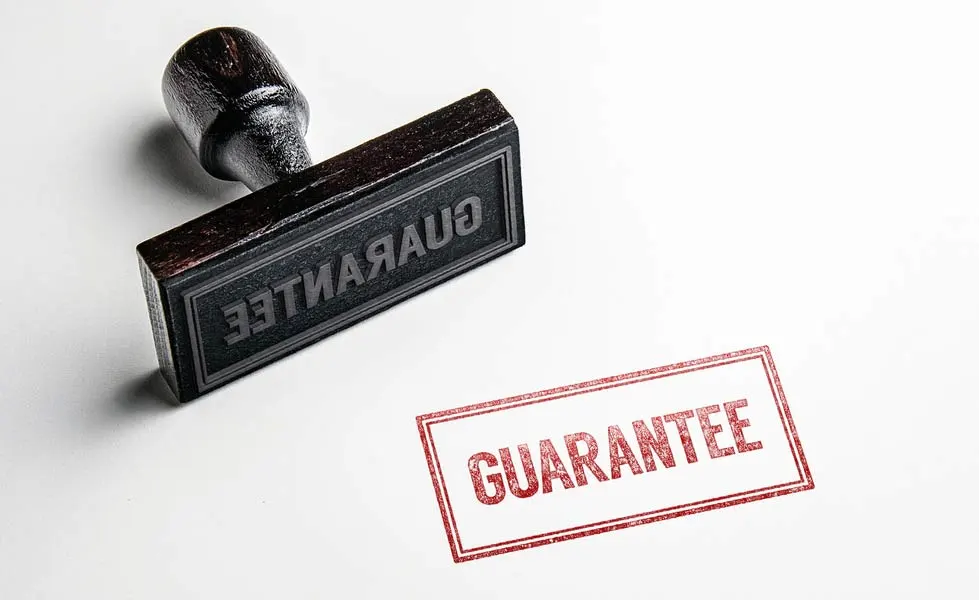The Nature & Effect of a Guarantee

A guarantee is defined as a collateral agreement for the performance of another’s undertaking or an agreement in which the guarantor agrees to satisfy the debt of another (the “Debtor” or “Principal Obligor”), only if and when the Debtor fails to perform such undertaking or repay the debt. In other words, it is an undertaking or promise that is collateral to the primary or principal obligation of a Principal Obligor to a person to whom an obligation or debt is owed (the “Creditor”), which binds the guarantor to perform in the event of non-performance by the Principal Obligor.[i]
[i] Umegu v. Oko (2001) 17 NWLR (Pt. 741) Pg.155, paras F-H
A guarantee can be issued by any person above the age of eighteen (18) years or by a body corporate. In most cases, directors of a company guarantee the obligations of a company whether financial or otherwise.
In practice, when a Debtor defaults, the Creditor has discretion to pursue either the guarantor, the Debtor, or both for recovery of the debt owed.
It is worth noting that if a person executes a personal guarantee to support a Debtor’s application for loan, that person puts all his property at risk if the Debtor defaults. This means, the guarantor of a loan will retain his/her/its burden as guarantor, until the Debtor clears its debt to the Creditor.
- What are the consequences of giving a personal guarantee?
A guarantee when enforced can have negative impact on the guarantor’s personal wealth and future securities. There is nothing inherently wrong with issuing a guarantee – in fact, it is a standard for most business financing – but you should have a clear understanding of the possible consequences of personal liability on business debts. A guarantor should understand the practical legal effect of the documentation and the transaction.
- The following are some of the repercussions of issuing a personal guarantee:
- (i) Bankruptcy OrderIf the Principal Debtor fails to pay, then the liability of the guarantor arises. If the guarantor fails to make payment then the Creditor may file bankruptcy proceedings against the guarantor and the guarantor may be forced to sell his personal assets to repay the loan.(ii) Reports to Credit Reference Bureaus (CRB)If the guarantor’s account is reported to an appropriate CRB or the Central Bank of Nigeria, the debt will lower the guarantor’s available credit and could make it harder to take out a personal or corporate loan.(iii) Continuing ObligationsMost guarantees have a continuing obligation clause, in that the liability of the guarantor will be in force for as long as the Principal Debtor continues borrowing and the amounts borrowed have not been paid. Therefore, such guarantees rarely have a termination clause. This makes it difficult for a guarantor to pull out of a guarantee.It is plain that until that transaction is completed, there remain questions which are open for investigation before the guarantor are called upon to discharge their full obligations under the guarantee as demanded of them by the bank.The available options for a guarantor are either to file for their own bankruptcy or get a release and discharge from the Creditor.
- What do you need to watch out for before issuing a guarantee?
One needs to watch out for the following in a guarantee:
- Conformity to the basic requirements of a contract
Ensure that the guarantee conforms to the basic requirements of a contract, such as an offer, acceptance, intention to be legally bound and that it is contained in a deed.
- Continuing Obligations
If the guarantee creates a continuing obligation on the guarantor, it means that the guarantor will be liable not only for the current financial liabilities but also for future advances, there is therefore no agreed termination or end date to the guarantee.
If the intention is to provide security only for the current advances then the guarantor must ensure that there is no continuing obligation clause in the deed.
- Capacity to give Guarantee
If it is a company giving a guarantee, then it should ensure that it is empowered to guarantee loans in its Articles of Association. In addition, the company should ensure to pass a resolution approving the issuance of the corporate guarantee. However, the failure to pass or produce a resolution would not be affect the validity of the corporate guarantee given that the Creditor would be protected under the indoor management rule[i] and section 93 of Companies and Allied Matters Act, 2020.
- Duress, Misrepresentation and Undue Influence
Creditors should ensure that guarantees are not procured under duress, misrepresentation or undue influence. As a precautionary measure, the guarantor should be advised to obtain independent legal advice and sign a letter of independent legal advice or confirm in the guarantee that they have obtained independent legal advice and are aware of the consequences of default on the part of the Debtor.
- Indemnity from the debtor
A guarantee automatically provides the guarantor with certain rights (such as a right to be indemnified by the Debtor). These guarantor rights may come into conflict with those of the beneficiary of the guarantee. For this reason, guarantee documents frequently exclude or restrict the application of these rights.
[i] Royal British Bank v Turquand (1856) 6 E&B 327
-
- What are the key features of a Guarantee?Guarantees are contracts and therefore need to have the key elements of a contract that is an offer, acceptance, consideration and intention to be legally bound.However, since guarantees are embodied in a deed, consideration need not pass.A guarantee creates a personal liability on the part of the guarantor. In C.B.N. v. Interstella Comm. Ltd[i] the Supreme Court in its decision stated as follows:“A guarantor is technically a debtor because where the principal debtor fails to pay his debt, the guarantor will be called upon to pay the money owed. However, the fact that the obligations of the guarantor arises only when the principal debtor has defaulted in his obligations to the creditor does not mean that the creditor has to demand payment from the principal debtor or from the guarantor or give notice to the guarantor before the creditor can proceed against the guarantor; nor does the creditor have to commence proceedings, whether criminal or civil, against the principal debtor unless there is an express term in the contract requiring him to do so”.The decision of the Supreme Court quoted above makes it abundantly clear that a guarantor is as good as a debtor.[i] (2018) 7 NWLR (Pt. 1618) 294 @ 338, para. B



